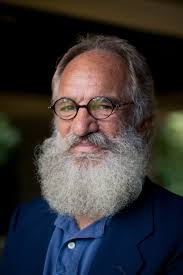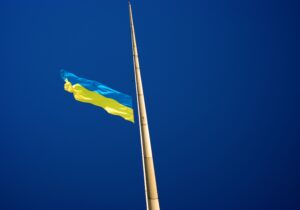The last four to six weeks have been witness to a flurry of high-level global diplomatic activity. U.S. President Biden made a surprise visit to Kyiv on February 20 before conferring with Polish President Andrzej Duda on February 20-22. This occurred only two days after Chinese Foreign Minister Wang Yi traveled to Germany to deliver a keynote address at the Munich Security Conference, followed by Wang’s visit on February 22 with Russian Foreign Minister Sergei Lavrov in Moscow. On March 21, Japanese Prime Minister Fumio Kishida made an unannounced trip to Ukraine to meet Ukrainian President Volodymyr Zelensky, becoming the latest Group of 7 (G7) national leader to visit the country. This occurred one day after China’s Xi Jinping arrived for a three-day visit with his Russian counterpart Vladimir Putin in Moscow.
On March 29, Taiwan’s President Tsai Ing-wen began a carefully-choreographed ten-day trip with stopovers in New York City, Los Angeles, Belize, and Guatemala. Then on April 5, unsurprisingly, Putin welcomed Belarus counterpart Alexander Lukashenko to Moscow for two days of talks on “topical bilateral and international issues.” Lukashenko, who had allowed his country to serve as a launch pad for the Russian invasion of Ukraine, had visited Moscow only a month and a half previously. And the latest diplomacy, occurring in early April, featured a three-day visit by French President Emmanuel Macron to Beijing, where he seeks to enlist the efforts of Xi to stop the war in Ukraine and limit Chinese support for the Russian war effort.
On whichever side of the war in Ukraine nations find themselves, one thing is unmistakably clear: nations are aware that the war’s outcome will have drastic implications for the international order. Contrary to the recent disappointingly shallow remarks by a certain Florida governor, Russia’s invasion of Ukraine is no mere “territorial dispute.”
In late January, Putin’s press secretary Dmitry Peskov told reporters that negotiations between Russia and Ukraine “are now impossible” since “there are no conditions for them either de facto or de jure.” Speaking on April 5th on Russian state radio, Russia’s deputy foreign minister Sergei Ryabkov declared present U.S. Russian relations to have gone beyond the “Cold War” stage and to be in “hot conflict,” reiterating statements made in early February that those relations were in a state of “unprecedented crisis.” Addressing members of the Duma – the lower house of the Federal Assembly of Russia – in mid-February, Foreign Minister Lavrov blamed the U.S. and its Western allies for pushing ties with Moscow to the “point of no return” by supporting Ukrainian efforts to resist the Kremlin’s ongoing invasion. The West, Lavrov told lawmakers, has had a policy of “many years of containment of Russia” alongside “the transformation of fraternal Ukraine into [an] anti-Russia . . . [and] Russophobic military stronghold.” And Putin’s own latest reminder to the world that the U.S. is to blame for the war in Ukraine occurred on April 5th, at a ceremony in Moscow for newly appointed ambassadors, with the new U.S. ambassador, Lynne Tracy, present.
Again, let us be sure not to miss the point: the U.S. is to blame for Russia’s invasion. An invasion whose toll in human lives has been estimated in toto by one source at about 300,000 dead or injured (200,000 Russian, 100,000 Ukrainian). An invasion that has produced millions of refugees on several continents. An invasion whose infrastructural damage to Ukraine has been recently assessed by the United Nations and the World Bank to be over $10 billion. An invasion whose unspeakable war crimes – which include mass murder, torture, rape, as well as the forced deportation of thousands of Ukrainian children to Russian territory – have caused the International Criminal Court to designate Vladimir Putin as a “war criminal” and issue a warrant for his arrest. Even so, the U.S. is purportedly to blame for the war’s tragedies and atrocities.
A full generation removed from the “Cold War” of which Foreign Minister Ryabkov speaks, most Americans and Europeans, asleep in their neo-isolationism, are doubtless made anxious – if not fooled – by the totalitarian bluster of our times. Some of us, however, are old enough to remember “Cold War” rhetoric that was a regular feature of Soviet and Communist “diplomacy.” Threats of “escalation” and nuclear blackmail were a normal part of the totalitarian repertoire. And when a generation ago many in the West were fearful of – and intimidated by – Communist tyrannical rhetoric, there were some leaders, notably Ronald Reagan and Margaret Thatcher, who were constrained morally to respond in a forceful way. They understood what many leaders either fail to grasp or are unwilling to acknowledge: namely, that totalitarianism has always respected strength, just as it has always exploited weakness and appeasement. It is as the law of gravity, and this “law” is what makes politics so consequential.
In a recent Wall Street Journal op-ed piece, Robert Kaplan argues that Putin invaded Ukraine less because of NATO’s expansion than because of his demonic dreams of Russian imperialism. While Kaplan is correct to point to Putin’s delusions of grandeur – for example, one senior Russian diplomat identifies Putin’s three advisors as Ivan the Terrible, Peter the Great, and Catherine the Great – he is wrong to limit Putin’s motivation merely to the Russian imperialist spirit, important as that is. There are essentially three factors that account for Putin’s decision to invade Ukraine, one of which Kaplan identifies. The other two need our attention as well.
One is Putin’s paranoia over NATO’s expansion into central and eastern Europe; the other is the U.S.’s dishonorable withdrawal from Afghanistan. It is the former that accounts for continued condemnation by Putin and Lavrov of the U.S. role in “destabilizing” foreign policy; after all, the Soviet empire lost to NATO Bulgaria, Slovakia, Slovenia, Romania, as well as the three Baltic states (with Finland now joining). It is the latter factor that accounts, most immediately, for Putin’s decision to invade Ukraine in February of 2022 – a decision that was reinforced by the West’s passivity and non-resistance in 2014 as Putin “annexed” eastern regions of Ukraine.
In contrast to the morally confused thinking that characterizes Western nations (including the U.S.) in the face of the totalitarian threat, two Asian leaders – in the news recently – grasp the moral and political meaning of Ukraine. One is the aforementioned Japanese Prime Minister Kishida, the other Taiwanese President Tsai Ing-wen. Last month Kishida became the first Japanese head of state to visit a foreign war-torn region of the world since World War II. He minced no words in decrying Russia’s invasion of Ukraine – an invasion that was condemned by the United Nations by a vote of 141 to 7, with 32 nations abstaining (the seven dissenting nations being Russia itself, Belarus, North Korea, Mali, Eritrea, Nicaraugua, and Syria). Russia’s invasion, Kishida insisted, is a “disgrace that undermines the foundations of the international order.” Who among Western leaders, we might ask, has dared to use this sort of language?
Building on Kishida’s clearsightedeness and realism about the international order, Taiwan’s President Tsai had this to say in her West Coast visit with House Majority leader Kevin McCarthy:
“The peace that we have maintained and the democracy which we have worked hard to build are facing unprecedented challenges. We once again find ourselves in a world where democracy is under threat.”
Prior to Tsai’s visit U.S. visit, Beijing warned that the U.S. was “playing with fire.” Zhu Fenglian, a spokesperson for the Taiwan Affairs Office of China’s State Council, reiterated the threat: “It will be another provocation. We firmly oppose this and will take resolute countermeasures to fight back.” And Chinese Foreign Minister Wang, reacting to news of Tsai’s visit, said that his nation strongly opposes any contact between the U.S. and Taiwan’s government and that it had already made “stern representations” to Washington about any visits. China has accused the U.S. of colluding with Taiwan to challenge Beijing by giving support to those who want the island to declare formal independence. “We again warn the Taiwan authorities that there is no way out for Taiwan independence, and any illusions about attempts to collude with external forces to seek independence and provocation is doomed to fail,” Wang warned. This, of course, follows on the heels of the Chinese “weather-monitoring” balloon incident in early February, which resulted in the cancellation of Secretary of State Antony Blinken’s trip to China. The U.S. reaction, in turn, led Chinese foreign ministry spokesman Qin Gang to warn that “there will surely be conflict and confrontation” unless the U.S. changes course.
This, of course, is language straight out of the Cold War. Notice the similarities here between Russian and Chinese totalitarian threats. Neither the independence and territorial integrity of Ukraine – affirmed in 1994 by Russia, Ukraine, the U.S. and the U.K. on the basis of the Budapest Memorandum – nor that of Taiwan – attested to by democratic presidential elections (occurring since 1996) – is permitted to be acknowledged. This is the evil of the totalitarian menace: embracing tyranny and oppression, it is committed absolutely to the obliteration of any human freedoms – personally, socially, or politically – that might challenge that tyranny.
In his opening remarks at the Munich Security Conference, NATO Secretary General Jens Stoltenberg had this to say about the war in Ukraine:
Some worry that our support to Ukraine risks triggering escalation. Let me be clear. There are no risk-free options. But the biggest risk of all is if Putin wins. If Putin wins in Ukraine, the message to him and other authoritarian leaders will be that they can use force to get what they want. This will make the world more dangerous. And us more vulnerable. So supporting Ukraine is not only the morally right thing to do. It is also in our own security interest. . . I do know this. Even if the war ends tomorrow, our security environment has changed for the long-term. There is no going back. [The] Kremlin wants a different Europe. One where Russia controls neighbors.
But that is not all. Stoltenberg proceeded to draw global implications of the war.
We also know that Beijing is watching closely. To see the price Russia pays. Or the reward it receives for its aggression. What is happening in Europe today could happen in Asia tomorrow. So the war in Ukraine demonstrates that security is not regional, it is global. In this new and more contested world, we can no longer afford to treat defence as optional. It is a necessity.
Stoltenberg, Kishida, and Tsai grasp what many of us do not: the fate of Asia is directly related to the war in Ukraine and European security more generally. Given Russian and Chinese aggression, along with contributions to tyranny from rogue nations such as North Korea and Iran, the U.S. will need to demonstrate courageous leadership while depending on and encouraging her allies. Globally, we live at a time in which a new “axis of evil” is emerging, a time in which human freedoms seem to be vanishing.
The issues reduce very simply to tyranny versus freedom and U.S. stewardship in global matters. To whom much has been given, much will be required. Either the U.S. will inspire confidence through its leadership or cause chaos in the international order.







 Sponsor a student for Christianity & National Security 2024
Sponsor a student for Christianity & National Security 2024